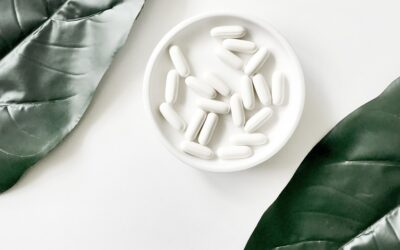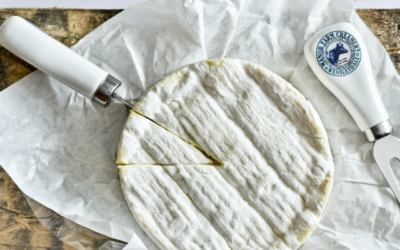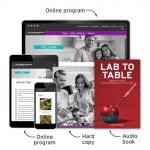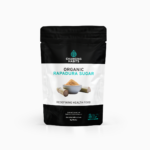Last week I was asked to be on an expert panel Q&A at the preview screening of That Sugar Film at Event Cinemas in Brisbane.
There were two cinemas running the event 30 minutes apart. The Q&A session went for 30 minutes in the first cinema and then Damon Gameau (producer and main actor), David Gillespie and host Matthew Toomey and I ducked into the next cinema to answer another string of questions from the audience.
Both Q&As had very similar questions and I thought you’d like to know what we talked about.
Is fruit OK to eat – this is a film on sugar, should fruit also be deleted from the diet?
Seasonal fruit is best to eat, and local if possible. Most fruits high in sugar are available in the summer like mangoes, berries, stone fruits, grapes, dragon fruit, pineapple, cherries and the like. Winter fruits are usually berries in QLD, papaya, apples, citrus, pears or fruits with less sugar. There is an ebb and flow to our food and if we live within the season then fruit doesn’t pose a problem. If you have diabetes or a major health challenge then this advice may not be in your best interest, individual advice would be best sought by a professional who can help with your individual needs.
Should my child eat five pieces of fruit a day?
I would rather see a child eat five pieces of fruit a day then eat refined foods filled with wheat based sugars, refined sugar or artificial sugar. Offer your child other foods as well the fruit and stick to seasonal fruits.
I’m confused about the advice given for diabetes. My dietitian told me to eat what I want, count my carbs and take the calculated insulin required. Is that right?
Eating foods that keep your blood sugar even rather than an up and down roller coaster is the way to reduce the catastrophic effects of diabetes. Managing your sugar levels is more important then eating what you want and calculating insulin requirements. It’s a new way of thinking and it gets results, but make sure you become informed before you change your diet. Remember also that saturated fat decreases the sensitivity of insulin receptors so monitor this food if you have diabetes. There is an evolutionary reason for this, but we won’t go into that now.
How much sugar do you advise? And what is the best?
Eating a diet filled with meat, fish, poultry, nuts, seeds, vegetables, fruits, heritage whole grains, cultured good quality dairy, legumes, herbs and spices along with the occasional natural sugar will not be the undoing of your health. The best sugars are our natural sugars – honey, real maple syrup and unrefined sugars such as rapadura and coconut sugar. Damon pointed out that there are now 60 names for sugar in our food ingredient lists. When you look at the ingredients you may not see sugar as the first listed but when you count up five different sugars all with different names in the one list it does become the greatest ingredient. It’s a trick food manufacturers play with the consumer.
Wheat and grain based sugars may include dextrose, malto-dextrin, xylitol, high fructose corn syrup, glucose, fructose, brown rice syrup, barley malt, corn sweetener, corn syrup, invert sugar, malt syrup, maltose, oat syrup, rice bran syrup and sorghum syrup, to name a few.
What is the importance of GI –glycemic index?
While David Gillespie believed that the GI was a mute value, I somewhat disagreed, but then he did have a good point. When you see that white sugar has a GI of around 50 and dates 70, yet the nutritional value is vastly different, you have to question the whole food value in relation to the GI value.
What is fructose malabsorption and what foods should we eat or not eat if you have it?
Fructose malabsorption is when fructose is not absorbed in the small intestine and if it is the polymer of fructose (fructan) it is not broken down into the simple sugars of fructose and absorbed. It then passes through into the large intestine and bacteria digest it into byproducts that make hydrogen, carbon dioxide, methane and other gases which cause bloating, abdominal pain, flatulence and malabsorption of tryptophan, zinc and folate. Symptoms are similar to irritable bowel and it may cause depression. There is a belief that dysbiosis of the microbiome is partly to blame but also the increase in high fructose corn syrup in the diet may be a major player in this digestive system malabsorption.
Eating foods with more glucose than fructose, only eating around 25gms of fructose per meal and avoiding high fructose foods all help decrease symptomology.
For more information on this disorder go to the following link as it explains the disorder as well as foods to avoid: http://en.wikipedia.org/wiki/Fructose_malabsorption
What about wheat – why are wheat intolerances increasing?
I found this question of interest, because the film was not about wheat but rather about sugar, yet wheat was in question. And the reason it is on everyone’s lips is that so many people are struggling with wheat and having health issues as a result of wheat and presumably gluten. What’s exciting is that I’m in the middle of making a documentary on wheat and the rising wheat and gluten intolerances and its relationship to autoimmune disease, diabetes and heart disease. One of the things that I should have brought up was the amount of fructans (polymers of fructose) in wheat, thus wheat is a food that people with fructose malabsorption should avoid. There is so much more to this wheat story that will be told in the documentary. I can hardly wait to share this with you.







0 Comments